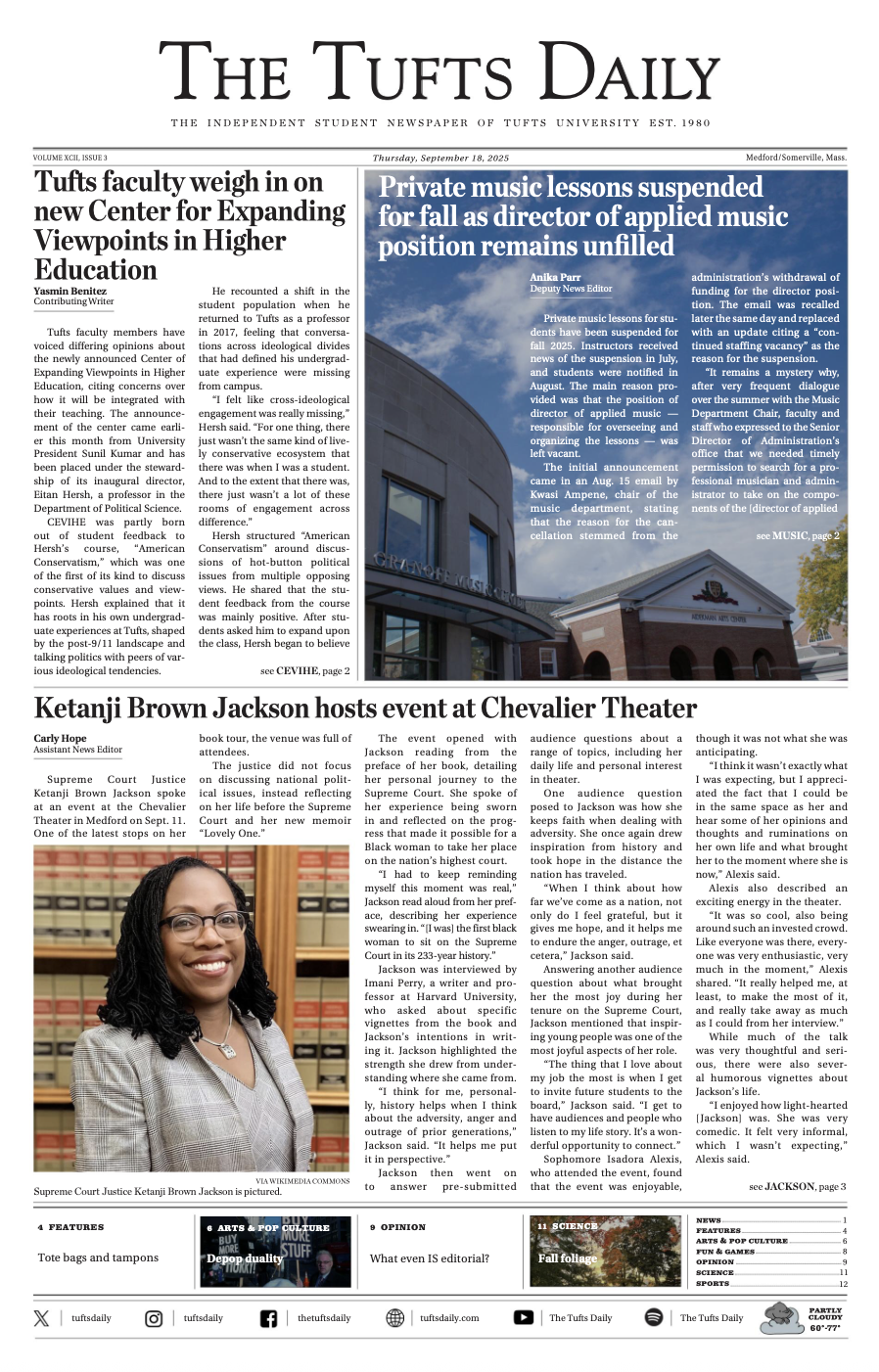Despite an upward spike in on-campus crime this year, most students still speak positively of on-campus safety.
In a poll conducted by the Daily this spring, 90 percent of the 328 respondents said they felt "safe" or "very safe" on campus.
Fifty-six percent of the 110 students who responded to the question about how safe they feel in off-campus housing reported feeling "safe" or "very safe."
Freshman Sari Haime said that she feels secure on the Tufts campus, especially when compared to her home nation, Colombia. "I have no problem walking home from the library at 1 a.m.," she said.
"I feel very safe," freshman Chris Fry said. "Campus is generally well lit. There are not a lot of random people walking around."
But no campus completely escapes the threat of crime. Freshman Andreas Lan reported that two "townies" attacked him while he was waiting for a friend to let him into Houston Hall one night.
While Lan escaped injury, he said he feels the Tufts University Police Department (TUPD) could be more active in improving student safety. "I don't feel very safe," he said. "They [TUPD] should do more to monitor dorm security."
Though small fights happen, the most prevalent crime this year was theft, especially in off-campus housing.
Threats to property, rather than person, produced the highest rate of crime this year. At least three Medford houses that are occupied by Tufts students were robbed over winter break, according to Lieutenant Paul Upton of the Somerville Police Department. More robberies also occurred in several student houses in Somerville near campus.
"Everyone knows that students go home during specific periods," Upton said. Since thieves face heavier penalties if an altercation accompanies a theft, many prefer to act when no one is home, such as the daytime hours on weekdays.
Junior Beth Bishop said she was the victim of theft in mid-January. Her backpack containing her iPod, wallet, passport, digital camera and books was stolen from the common area of her off-campus apartment in the middle of the night. The door to her apartment was unlocked.
Victims of theft often don't see their property again, as was the case for Bishop who filed a police report following the theft of her backpack. "The police were very nice, but I didn't get my stuff back," she said.
Upton said that many of the houses in the areas around Tufts have a common hallway, and that many students leave the front doors that lead to this hallway unlocked. He stressed that the most effective way to prevent burglary is to lock doors securely. "You want to keep the burglar outside as much as possible," he said.
Bishop said that since the theft, she and her roommates always lock their doors. She also leaves all her valuables in her room, not the hallway.
While acknowledging the possibility of thefts, Fry said that prevention was simple. "I lock my door. It's common sense," he said.
Upton outlined additional basic measures students can take to protect their belongings. As warm weather begins, Upton said, students should raise their windows by only four or five inches, because thieves can easily puncture holes in the screen. Quality window locks are also a must, Upton said.
According to Upton, the most commonly stolen items are cash, jewelry and small electronics like laptops and digital cameras. "Basically anything that can be thrown into a bag," Upton said.
Upton said he recommends engraving electronic devices with social security numbers so that police can track down owners of confiscated stolen property. Owners should also know their electronics' serial numbers so they can notify the manufacturer that a product has been stolen.





